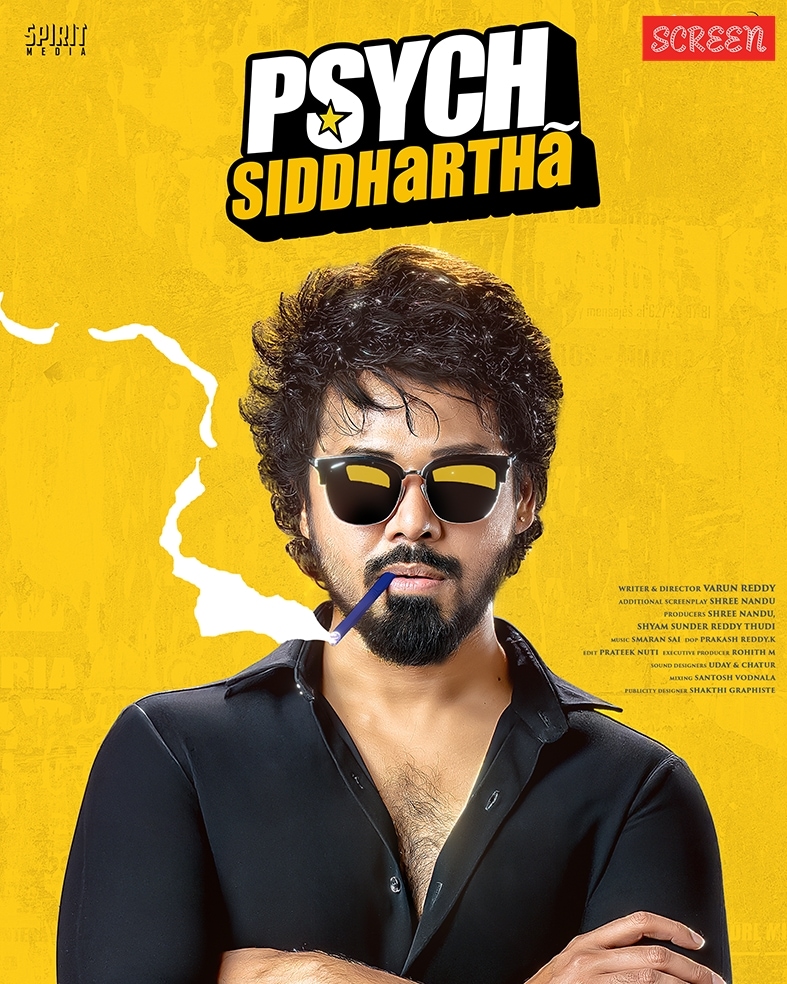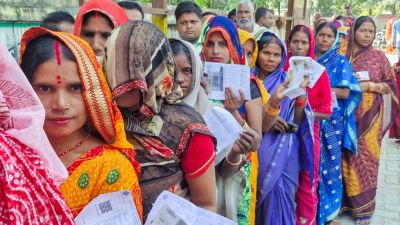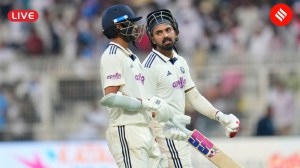Rana Daggubati leads Spirit Media’s push for independent, story-driven Indian cinema
Actor-producer Rana Daggubati on why he’s betting on filmmakers who tell good stories and how to break regional barriers
 Through Spirit Media’s new focus and plan, Rana Daggubati also wants to blur divisions based on the audience of different regions.
Through Spirit Media’s new focus and plan, Rana Daggubati also wants to blur divisions based on the audience of different regions.At a time when artificial intelligence (AI) is being seen as a disruptive force, actor and founder of Spirit Media, Rana Daggubati is championing emotionally rich dramas and story-driven cinema. His selection of projects is determined by the story and the filmmaker’s intent to make them. “Whether it is a Rs 50 crore or a Rs 5 crore film, it doesn’t matter as long as the creator has the vision to build something unique and interesting.” Ditto, when it comes to the talent his production house wants to be associated with. “Be it Dulquer Salmaan in Kaantha or Manoj Bajpayee in Last Man in Tower — they are both supporters of independent storytelling,” he adds.
The studio’s first home production, Kaantha — a Tamil period-noir thriller directed by Selvamani Selvaraj — hit theatres on November 14. Spirit Media has also grabbed attention with the announcement of their first Hindi film, an adaptation of Aravind Adiga’s acclaimed novel Last Man in Tower, to be directed by Ben Rekhi. The studio’s upcoming releases include pulpy dark comedy Dark Chocolate, Psych Siddhartha and the romantic thriller Premante, all Telugu films.
 Rana Daggubati-backed Kaantha hit screens on November 14.
Rana Daggubati-backed Kaantha hit screens on November 14.
Even though Daggubati produced his first indie Telugu film Bommalata (A Belly Full of Dreams) in 2004, this time around, he is making a concentrated effort to back a mixed slate. “This is a constructive way of me trying to create an organisation that can support cinema (independent-spirited) and help create a group of producers that can take stories forward. It is not about an individual or a single person governing an organisation,” says Daggubati, who enjoyed pan-Indian popularity as Bhallaladeva in Baahubali (2015). Some of his other talked-about movies include Leader (2010), The Ghazi Attack (2017) and Bheemla Nayak (2022). He also acted in the web-series Rana Naidu and hosted The Rana Daggubati Show.
Also Read | Kaantha movie review: Dulquer Salmaan’s period drama thriller is visually rich, narratively lean
Son of producer D Suresh Babu and nephew of actor Venkatesh, Daggubati says, “I have learned everything about life — stories, characters, people and behaviour — through cinema. I believe it has a lot more to offer than being an entertainment medium. Today, there is long-formatted streaming, there is short content and so many more options. Yet, the hold of large-format entertainment on a big screen, where you watch the film as a community, is still the best thing that is possible.”
Daggubati has also supported indie films such as Payal Kapadia’s All We Imagine As Light (2024) and Rohan Kanawade’s Sabar Bonda (2025). He believes that all kinds of movies should coexist and find their audience. “What the audience really wants is variety. They want to watch different things and feel different things. As much as I would love to do different types of movies, I am still one individual. Instead, I should be able to channel stories that are independent and have a unique voice,” he says.
Through Spirit Media’s new focus and plan, the actor-producer also wants to blur divisions based on the audience of different regions. “In recent years, this barrier has been broken as Telugu and Tamil films now have an audience across the country,” he says. Even though movies directed by Mani Ratnam such as Roja (1992) and Bombay (1995) and Ram Gopal Varma’s Shiva (1990) crossed over, filmmakers never followed it up. “It didn’t form a real industry in that manner,” he says, adding that Baahubali, however, sent out a message that “this is a movie that all of India can watch”.
Elaborating on why he chose to adapt Adiga’s book as a Hindi movie, Daggubati says, “It is a story that talks about greed and the real estate issue of Mumbai. I have been living in Mumbai, on and off, for the last 10 years. Every time I get an apartment, that building goes for redevelopment and I have to move. In every big city, residents go through this journey of relocating. But there is always somebody who is possessive about a house and does not want to move.” Last Man in Tower is about a retired schoolteacher who refuses to move, even though a builder makes a lucrative offer.
 A poster of Psych Siddhartha.
A poster of Psych Siddhartha.
Both All We Imagine As Light and Sabar Bonda travelled to several international festivals before releasing in Indian theatres. “We have always been a filmmaking community that made movies mostly for India and less for global audiences. While spectacles like RRR (2022) will cross over in some ways, it is heartening that independent cinema can do that too. Today, the whole world watches Korean films like it is their own. So, there is a possibility for us to create Indian stories in that same manner and reach a global audience.”


- 01
- 02
- 03
- 04
- 05




























